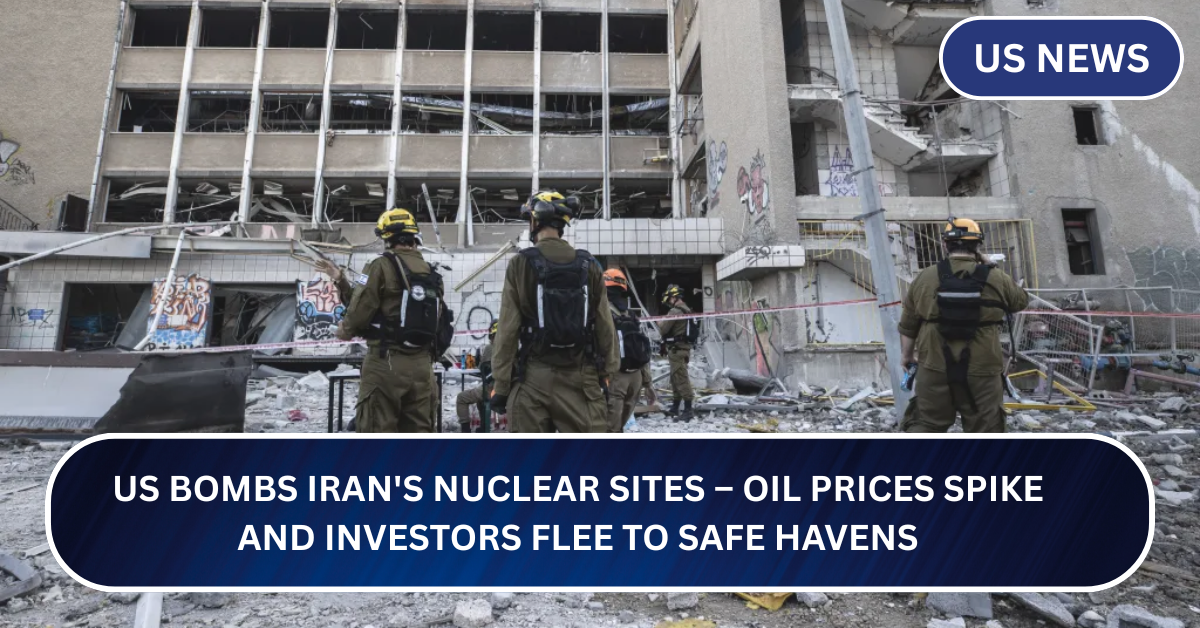Oil prices have shot up and global markets are feeling the pressure after the United States launched airstrikes on Iran’s nuclear facilities. This sudden move has created tension across financial markets, especially among investors who now fear further conflict in the Middle East. As a result, many investors are quickly moving their money into safe havens like gold, government bonds, and the US dollar, hoping to protect themselves from further losses.
The situation has triggered sharp movements in pre-market trading. Dow futures fell by more than 150 points in early trading as news of the strikes broke. Oil prices, on the other hand, jumped significantly, as any disruption in the Middle East can affect global oil supply. Iran is one of the major oil-producing countries, and any kind of military tension involving them can easily shake up the global energy market.
The fear right now is not just about what has happened, but what could happen next. Investors are asking whether this strike will lead to a bigger war in the region, or whether it will remain a one-time event. Markets don’t like uncertainty, and right now, there’s a lot of it. People are unsure how Iran will respond, whether the US will take further steps, and how other nations will react to the entire situation.
In times like this, the first reaction from financial markets is usually to become defensive. That’s exactly what we are seeing. Investors are pulling their money out of riskier assets like stocks, especially in sectors that depend heavily on stability, such as airlines and tourism. Instead, they are turning to traditional safe options. Gold prices have gone up. The US dollar has strengthened. Treasury yields have dropped as more investors buy government bonds. These are classic signs of a market trying to avoid risk.
Even the energy stocks have seen mixed responses. While oil prices are rising, which usually helps companies in the energy sector, the risk of a larger war means that investors are also cautious about how supply chains and production could be affected in the longer run. Companies involved in shipping and logistics across the Middle East may also face challenges if this conflict continues to grow.
Apart from markets, ordinary people might also feel the impact. Higher oil prices can lead to an increase in petrol and diesel rates. This can affect transportation costs, food prices, and overall inflation. If oil stays expensive for a long time, people could start feeling the pinch in their daily expenses.

Meanwhile, global leaders are watching the situation closely. There have been calls from some countries to calm the tensions and avoid further violence. Some experts believe this strike could have been a strategic warning, while others feel it might open the door to more aggressive actions. The coming days will be very important to understand the real impact of this move.
For now, most investors are waiting and watching. Some may make quick trades to take advantage of price swings, but many others are more focused on protecting their portfolios. This kind of geopolitical risk is hard to predict, which makes it all the more dangerous for global markets.
In recent times, the world has already been dealing with inflation, rising interest rates, and fears of a slowdown. Adding geopolitical uncertainty to the mix only makes things harder for everyone — from large investors to small business owners to regular people. When there’s conflict in key regions like the Middle East, it’s not just one country that suffers. The effects are felt across the globe.
The US airstrikes on Iran’s nuclear sites have already caused oil prices to rise and made investors nervous. People are rushing to protect their money by investing in safer options. The financial world is clearly bracing for more instability. Whether this will be a short-term market reaction or the start of a longer crisis depends on what happens next in the political arena. But one thing is certain — the markets are on edge, and everyone is watching closely.




